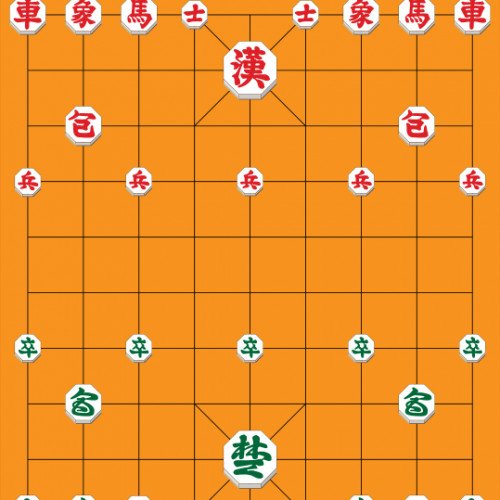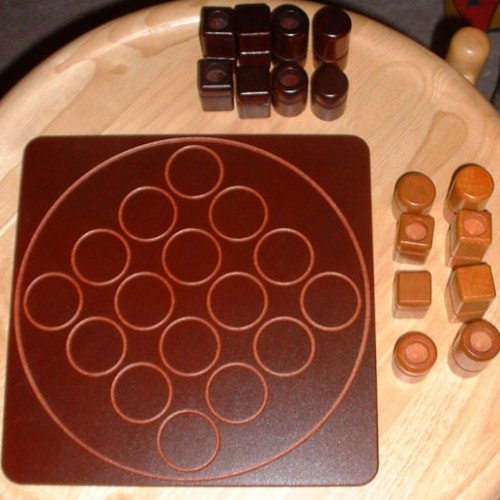JANGGI VS QUARTO

JANGGI
Janggi (including romanizations changgi and jangki), sometimes called Korean chess, is a strategy board game popular in Korea. The game was derived from xiangqi (Chinese chess) of China and is very similar to it, including the starting position of the pieces, and the 9×10 gameboard, but without the xiangqi "river" dividing the board horizontally in the middle. Janggi is played on a board nine lines wide by ten lines long. The game is sometimes fast paced due to the jumping cannons and the long-range elephants, but professional games most often last over 150 moves and so are typically slower than those of Western chess. In 2009, the first world janggi tournament was held in Harbin, Heilongjiang China. The board is composed of 90 intersections of 9 vertical files and 10 horizontal rows. The board has nearly the same layout as that used in xiangqi, except the janggi board has no "river" in the central row. The pieces consist of disks marked with identifying characters and are placed on the line intersections (as in xiangqi and Go in China). Janggi pieces are traditionally octagonal in shape, and differ in size according to their rank. The sides are Blue (or sometimes Green), which moves first, versus Red. Each side has a palace that is 3 lines by 3 lines (9 positions) in the centre of their side of the board against the back edge. The palace contains four diagonal lines extending outwards from the centre, forming an "X" shape.
Statistics for this Xoptio

QUARTO
Quarto is a board game for two players invented by Swiss mathematician Blaise Müller. It is published and copyrighted by Gigamic. The game is played on a 4×4 board. There are 16 unique pieces to play with, each of which is either: tall or short; red or blue (or a different pair of colors, e.g. light- or dark-stained wood); square or circular; and hollow-top or solid-top. Players take turns choosing a piece which the other player must then place on the board. A player wins by placing a piece on the board which forms a horizontal, vertical, or diagonal row of four pieces, all of which have a common attribute (all short, all circular, etc.). A variant rule included in many editions gives a second way to win by placing four matching pieces in a 2×2 square. Quarto is distinctive in that there is only one set of common pieces, rather than a set for one player and a different set for the other. It is therefore an impartial game.